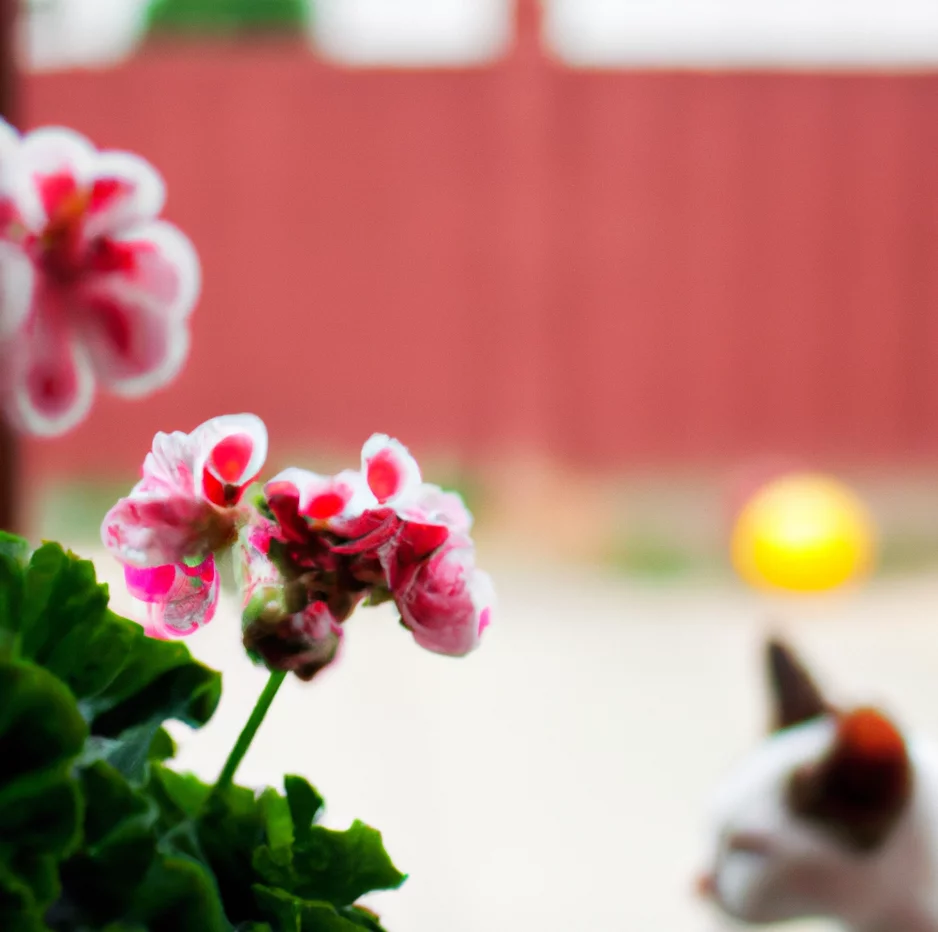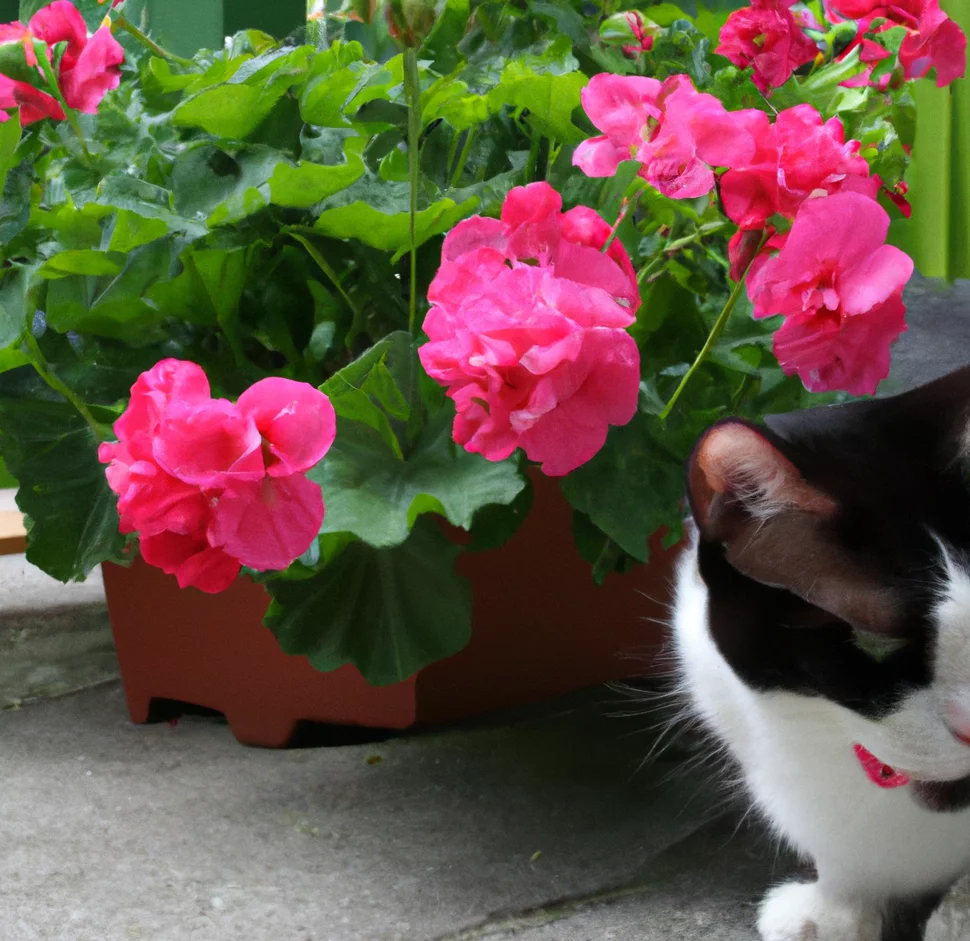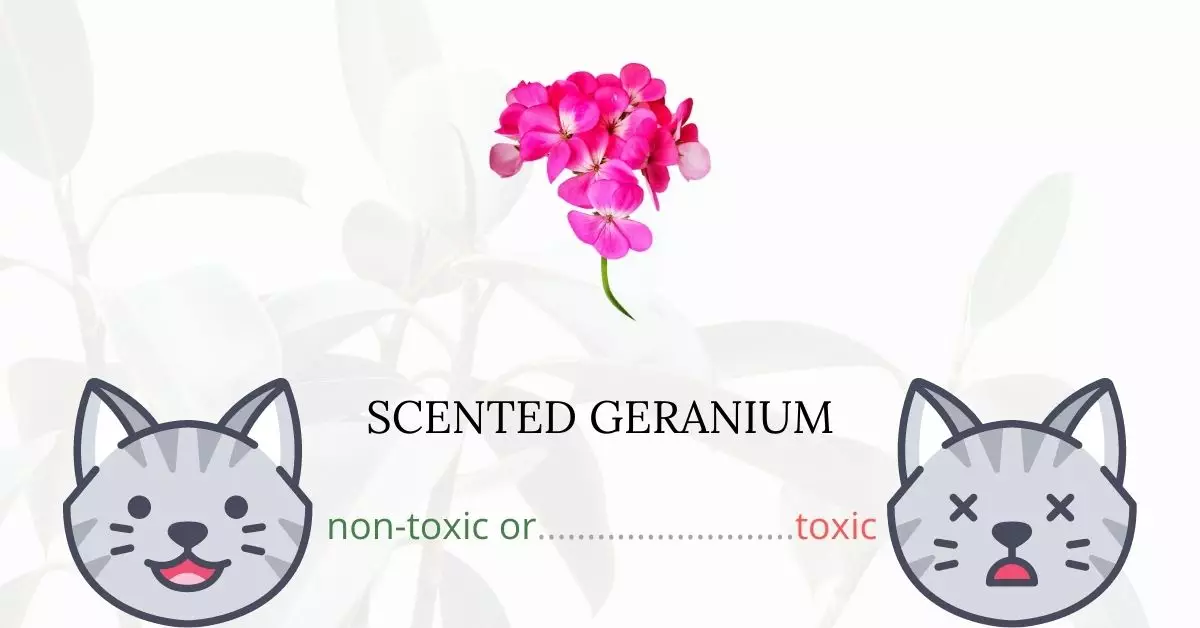The concise answer to whether scented geraniums are toxic to cats is, yes, they can be harmful. Consumption of any part of scented geraniums, be it leaves, stems, roots, or flowers, can cause poisoning in cats due to the presence of essential oils, linalool, and geraniol, which are detrimental not only to felines but also to other domestic animals such as horses and dogs. These essential oils are not easily tolerated by the digestive system, often inducing illness even before a significant amount of the plant is consumed. Given the petite nature of most felines, ingesting even a minimal amount of scented geranium can pose substantial risks.
This article has been meticulously crafted in collaboration with a panel of experienced Doctors of Veterinary Medicine (DVMs), whose invaluable insights enable us to deliver precise and current information on the potential dangers posed by various plants, including scented geraniums, to cats. Our comprehensive research also encompasses information gleaned from high-authority websites such as ASPCA and PetMD to ensure that every piece of information we provide about each plant is backed by credible sources. Through collective expertise and extensive research, we aim to raise awareness about plant toxicity and help pet owners make informed decisions to safeguard the well-being of their feline companions.
Clinical Signs of Scented Geranium Poisoning in Cats

When cats come into contact with, ingest, or inhale the scent of scented geranium plants, several clinical signs may emerge due to the toxins present in the plant, namely essential oils, linalool, and geraniol. Here is a breakdown of each symptom, its cause, and why it occurs:
- Vomiting: Vomiting is a common initial reaction as the cat’s body attempts to expel the ingested toxic elements of the plant. The essential oils found in scented geraniums can irritate the gastrointestinal tract, leading to nausea and subsequent vomiting.
- Ataxia: Ataxia, or uncoordinated movements, occurs due to the neurotoxic effects of the plant toxins, impacting the cat’s nervous system and muscle control. This can lead to stumbling, swaying, or a lack of coordination.
- Diarrhea: Diarrhea is another symptom indicative of gastrointestinal irritation. The ingested toxins interfere with the normal functioning of the digestive system, causing upset and irregular bowel movements.
- Depression: Depression in cats, manifested through lethargy or altered behavior, is a symptom of the overall systemic impact of the toxins, affecting the central nervous system and leading to changes in mood and responsiveness.
- Hypothermia: A lowered body temperature, or hypothermia, is a reaction to the plant’s toxins affecting the cat’s metabolic and thermoregulatory processes, leading to a decrease in the ability to maintain normal body temperature.
- Muscle Weakness: Muscle weakness arises due to the adverse effects of the toxins on muscle tissue and nervous system function, leading to reduced muscle strength and endurance.
Every symptom presented above can vary in severity, depending on the amount of scented geranium consumed or contacted, and requires immediate attention and treatment from a veterinarian to mitigate long-term damage and ensure the safety and recovery of the affected feline. Keep a vigilant eye on your pets around such plants and consult with a veterinarian immediately if you suspect contact or ingestion has occurred.
First Aid and Treatment of Scented Geranium Poisoning in Cats

Cats suffering from scented geranium poisoning are treated by removing the plant from the feline to avoid additional intake and eliminating the poisons from the cat’s body. An emetic medicine will be supplied to stimulate the cat to vomit in order to expel the undigested poison from the feline’s stomach. The veterinarian may also give activated charcoal. To limit absorption, activated charcoal binds with harmful substances in the digestive system. Intravenous fluids may be administered to the kitty in order to restore his or her hydration.
Recovery from Scented Geranium Poisoning in Cats

The prognosis for scented geranium poisoning in cats is guarded to excellent, and it is highly dependent on the amount of plant material ingested. If the cat no longer swallows any more plant material, the feline will usually recover in about 24 hours. As with other cases of plant poisoning, the sooner the kitty is taken to the veterinary facility, the better the chances of a full recovery.
Prevention of Scented Geranium Poisoning in Cats
Avoid growing or bringing scented geraniums within the vicinity of your home. Keep your cats indoors to prevent them from wandering into your neighbors’ gardens where scented geraniums or other toxic plants might be growing.
If you love plants but have cats at home, check out these lists:





